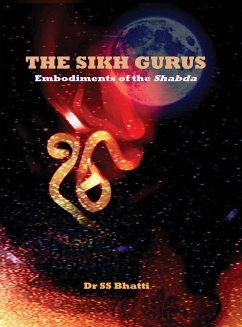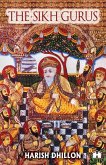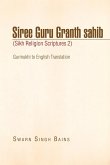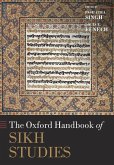Guru Nanak Dev founded the Sikh Faith and was succeeded by Nine Sikh Gurus. His birth is celebrated worldwide as Guru Nanak Gurpurab on Kartik Pooranmashi, the full-moon day in the Indian month of Katak [Kartik in Hindi], October-November every year. Guru Nanak travelled far and wide spreading the message of an uncompromising Monotheism grounded in One [Peerless] God who dwells in the hearts of all creatures and has Truth as His Primal Attribute. He established a unique holistic faith of spiritual, social, and political realities based on equality, love, justice, peace, and virtue. His Revelation [I have named Creative Mysticism in my second PhD] is preserved in 974 shabads [hymns] in the sacred scripture of the Sikh Faith, Sri Guru Granth Sahib [SGGS]. The Sikh Bible contains, among many things, his major prayers such as Japuji, Asa di Var, and Siddha-Gosht. An inviolable tenet of the Sikh Faith is that the soul of Guru Nanak's sacrosanctity, divinity, and religious authority was infused into each of his nine successors when they were admitted to his Spiritual Ministry. The genesis, growth, worth, and perennial relevance of the Sikh Faith began with the birth of the founder Guru Nanak Dev in 1469 CE to the death of Guru Gobind Singh in 1708 CE. This period coincided with the establishment and consolidation of the Mughal Empire in India. The Mughal rulers followed the policy of oppression and persecution that the Sikh Gurus fiercely opposed and even sacrificed their lives to uphold the fundamental human rights grounded in the recognition of the intrinsic goodness and dignity and of the equal and inalienable rights of all members of the human family such as equality before law, freedom of speech and expression, freedom to practise religion, and freedom to seek justice through peaceful and legal means.
Hinweis: Dieser Artikel kann nur an eine deutsche Lieferadresse ausgeliefert werden.
Hinweis: Dieser Artikel kann nur an eine deutsche Lieferadresse ausgeliefert werden.








